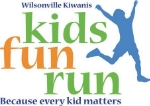While technology may not cure every arts management need, it has created significant opportunities for connecting people already passionate about your organization to people likely to be. These peer-to-peer connections can fuel both sides of the institutional development coin – patrons and donors. Almost every organization includes a “refer a friend” campaign in email communications to grow its audience, or a seasonal “friends and family" campaign to expand annual campaigns. Others have taken it to a more advanced level with coordinated online giving circles, models particularly well executed in the health services sector for events like Walk for the Cure or MS Ride for the Cure. If you are new to the idea of peer-to-peer, this infographic provides a framework of the process and data on the results:
Source: re: charity
Regardless of the complexity of the campaign, technology makes peer-to-peer ventures easy to implement. But easy does not create the framework for success. Passionate and engaged participants in the campaign are critical.
The key to a successful launch of a giving circle campaign is four-fold: a) planning, b) authenticity, c) commitment and d) clearly communicating and managing the campaign. “Giving Circles: What Makes Them Powerful” in the Nonprofit Quarterly provides a keen example with the Women’s Collective Giving Grantmakers Network donating more than $9 million dollars in 2012. Interesting to historians like myself, the story echoes the giving circles’ deep history in the women’s clubs of the turn of the 20th century. And, as in the past, the impact is greatest when there is a strategic implementation between the peer network and the organization.
Peer-to-peer fundraising is tempting in an environment of an ever-shrinking donor landscape and easy-to-use technology. Most online CRM systems, for example Donorpro or Blackbaud, offer a software solution option. For those without advanced CRM, easily implemented stand-alone offerings abound, although many are targeted for sporting events (for example, Exceed as identified in Capterra’s best fundraising software list). If your organization is engaging or contemplating a peer-to-peer campaign, evaluation and planning up front will help ensure success. In November, Idealware published a free handbook designed to save the fundraising manager time and money while presenting a model that makes "Peer-to-Peer Fundraising Easy." The handbook takes the reader through a step-by-step process to determine if the organization is in the right position for a successful campaign. From staffing to budgets, the handbook provides worksheets and discussion points to aid the arts manager in determining when to launch a peer-to-peer campaign and when to hold off until the moment is right. If your organization tests as ready, the handbook proceeds through the planning, implementation, and evaluation of the success of the campaign, including the always necessary thank you’s at the end.
So as you sit in your office this winter considering summer fun runs or other peer-to-peer driven fundraising models, download the workbook and determine whether or not your organization is ready. Then share your story with us and the other arts managers in the field by emailing us your story or engaging on our social media channels. The more we share our stories, the better we mobilize best practices in the field.



